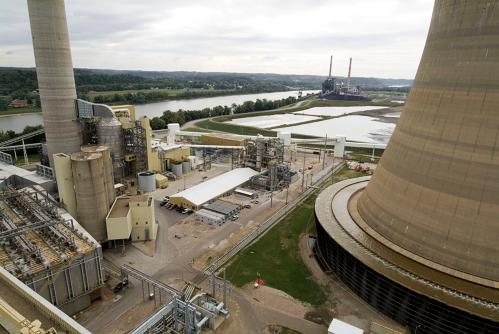

9:30 am EDT - 11:00 am EDT
Past Event
9:30 am - 11:00 am EDT
1775 Massachusetts Avenue NW
Washington, DC
20036
In an effort to address climate change, one low carbon mitigation technology that has been widely discussed is carbon capture and storage (CCS), which offers a way to prevent CO2 emissions from electricity generation and industrial processes from entering the atmosphere. Despite this potential, CCS has not been widely deployed on a commercial basis in the power sector owing to a variety of risks and challenges. Indeed, CCS is in many ways at a stand-still: While many experts and observers consider it a cost-effective low carbon option in the long-term, without appropriate policy support to address these risks, there remains limited progress in commercializing the technology.
On October 16, the Energy Security and Climate Initiative (ESCI) at Brookings hosted a discussion on the status and future of CCS technology, with a particular focus on the United States. ESCI Acting Director and Fellow Tim Boersma and ESCI Nonresident Senior Fellow John P. Banks presented the findings of their recent issue brief, “Fostering low carbon energy: Next generation policy to commercialize CCS in the United States,” the latest in ESCI’s Coal in the 21st Century series. Vice President of Summit Carbon Capture Sasha Mackler and Edward S. Rubin, alumni chair professor of environmental engineering and science at Carnegie Mellon University, joined the discussion.
Related Content

John P. Banks, Tim Boersma
October 16, 2015
9:30 am - 11:00 am
As global coal consumption rises, low carbon technologies such as carbon capture and storage (CCS) offer a way to significantly decrease emissions and help countries meet climate change mitigation targets. On October 16, the Energy Security and Climate Initiative (ESCI) at Brookings hosted a discussion on the future of CCS technology alongside the launch of a new ESCI issue brief on the key policies needed to commercialize CCS in the United States.

Elaine Kamarck
July 2, 2025

Amar Bhattacharya, Homi Kharas, Charlotte Rivard, Eleonore Soubeyran
June 30, 2025

David Wessel
June 17, 2025